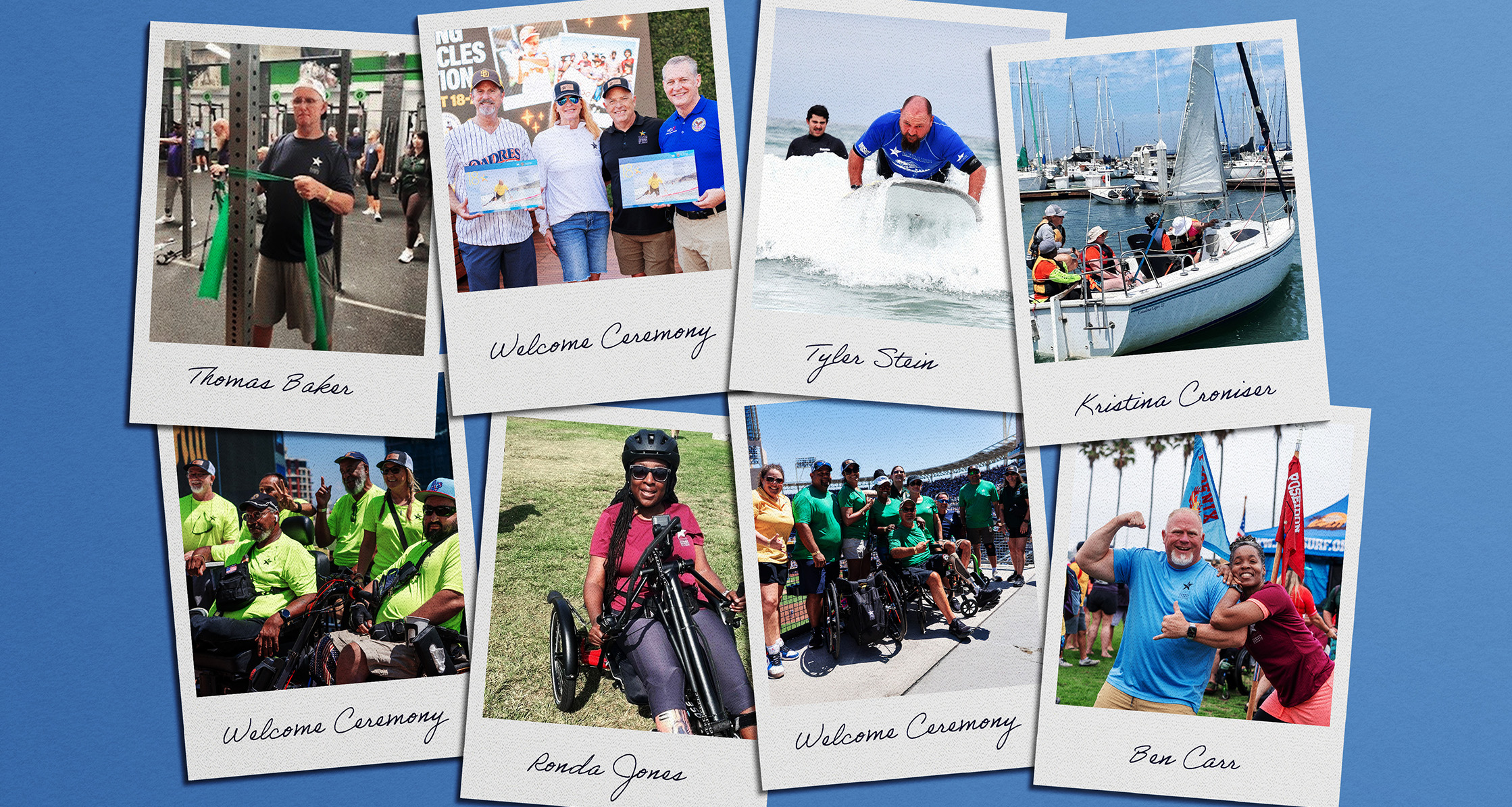TriWest is a Proud Annual Sponsor of the Adaptive Sports and Activities Event
Excitement, energy, and enthusiasm hovered in the warm air under clear skies on Aug. 24 for the rooftop patio welcome ceremony to open the 18th National Veterans Summer Sports Clinic at Petco Park in San Diego, California.
The clinic kicked off at the MLB ballpark where disabled and injured U.S. Veterans gathered to be greeted, treated, and heartily cheered at a full house pennant race game between the Los Angeles Dodgers and the San Diego Padres.
Held Aug. 24-30, the annual adaptive sports and activities clinic is hosted by the Department of Veterans Affairs (VA) in collaboration with presenting sponsor Wounded Warrior Project®. Throughout the week, they host energizing summer adaptive sports workshops at sites and venues around San Diego.
Nearly 150 Veterans from across the nation were invited, enjoying an invigorating week of instruction and support in adaptive fitness, cycling, kayaking, meditation, sailing, surfing, and yoga.
As a long-time supporter of adaptive sports and activities for disabled and injured Veterans, TriWest Healthcare Alliance (TriWest) is proud to be one of the clinic’s annual sponsors. Each year, TriWest attends the inspiring event to share the energy, enthusiasm, and determination of these resilient Veterans.
Invigorating Rehabilitation, Challenging Activity, and Veteran Connection
The innovative clinic hosts Veterans with challenging disabilities and injuries including amputations, post-traumatic stress disorder (PTSD), traumatic brain injury, spinal cord injuries, and more.
The invited Veterans receive on-site support and assistance from their local VA rehabilitation therapists who recommended them for the clinic. Each Veteran is selected based on how adaptive summer sports and Veteran connection would benefit them in their ongoing rehabilitation goals.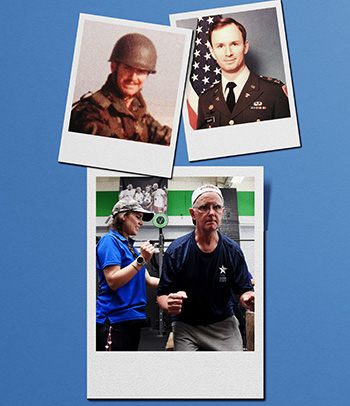
At the ballpark welcome ceremony, Thomas Baker, 63, a U.S. Army Veteran (1983-1992) of Colorado Springs, Colorado, with a degenerative nerve disease directly addressed the key benefit gained from the rejuvenating clinic.
“The biggest thing about the Summer Sports Clinic is the camaraderie with other Veterans,” Thomas explained. “It’s the thing that is healing for all of us.”
During the ballgame, Thomas shared about close camaraderie and pride within a cohesive unit, particularly during his favorite tour that involved chemical weapons removal in Germany.
“The best thing that I did in the service was to be involved in the mission to remove chemical weapons from Europe,” Baker shared. “I did the logistics portion of it, and it was authorized by President Reagan, so we had his authority. There was literally no door that could not be opened,” he added.
Thomas, who proudly uses VA’s Community Care Network for part of his care, says his degenerative nerve disease is not from his service but is likely hereditary on his father’s side. He emphasized how his tour in chemical weapons removal involved work in highly secure, orderly, and meticulously maintained places.
“The most unique place I have ever been is in a chemical weapons bunker,” he explained. It’s the cleanest place I’ve ever been, and you could literally eat off the floor in there – it was amazing to see.”
The next morning at the first day of the adaptive fitness activity in downtown San Diego, Thomas followed up how camaraderie and challenge motivates disabled and injured Veterans.
“There’s a sense of freedom that is given that you can do things and you’re in an environment you can push yourself,” he shared. “It’s so invaluable because we as ‘broken Vets,’ we’re able to do things in this environment we normally wouldn’t challenge ourselves to do.”
“I attended the 2024 Summer Sports Clinic, so it is my second one,” he continued. “Last year was the first time I went surfing. It’s the first time I’ve been sailing. It’s the first time I’ve turned a kayak over and went underwater and wondering ‘Where the heck am I?’ They’re so meticulous about accommodating us for our injury that it is totally safe, and I really appreciate it,” Thomas emphasized.
Discovering Inspiration, Enthusiasm, and Rejuvenating Camaraderie
Ronda Jones, 53, from Brandywine, Maryland, who served as a lithographer in the U.S. Army (1990-1993), explained the importance of the clinic to foster rehabilitation after serious injury and lengthy recovery.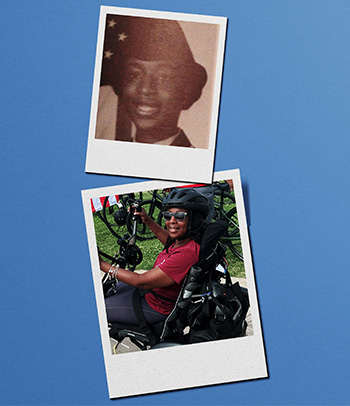
In 1991, prior to a scheduled Desert Storm deployment, Ronda stepped in a ditch during her duty in Germany, crushing two bones in her foot and rupturing a tendon in her leg. Her injuries required that she had to be flown back to Walter Reed Hospital in Bethesda, Maryland, for immediate specialty care, and later she separated from the Army.
After her service, Ronda developed osteoporosis making her foot and ankle immobile and brittle. She broke her foot again in the same place and due to its brittle state, it wouldn’t heal. Surgeons tried rods and other repairs to her foot, but it still failed to heal.
Her lower leg injuries gradually limited her ability to wiggle her toes or move her ankle, and finally her foot started turning black. The discouraging setback prompted her specialists to inform her she would need an amputation.
Thirteen surgeries later following her initial injury, she had a lower leg amputation in 2016. It again didn’t heal properly, and Ronda required more surgeries. In 2018, surgeons had to remove more of her lower leg.
On the second day of the adaptive cycling activity, Ronda shared her enthusiasm for attending the Summer Sports Clinic to rehabilitate with other Veterans.
“This is my second Summer Sports Clinic,” Ronda cheerfully shared. “My first one was in 2022, and to my pleasure, I found out I could come back again!”
“This clinic means so much to me because, one, I’m seeing Veterans like me I only see at these events. It’s once every three to four years I get to see these fellow injured Veterans, and I make good friends and good connections,” she explained.
“In the bigger scope and the bigger scale, why this clinic means so much to me is that I’ve learned my life is not over just because I lost a limb, or because I have back injuries. I can still do everything I used to do before, it just looks different,” Ronda emphasized.
“Today I’m riding a bike – a handcycle – before I used to ride an upright bike. Now I can still get out on the bike trails and ride just like anybody else.”
Empowerment and Rehabilitation Through New Challenges and Experiences
One of the primary goals of the Summer Sports Clinic is to inspire and empower the participating Veterans to challenge themselves through new skills and activities.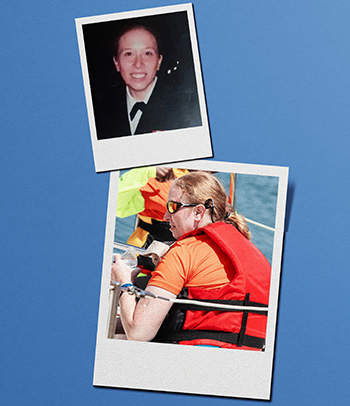
Kristina Croniser, 42, from Cincinnati, Ohio, is a U.S. Navy Veteran who served as a hospital corpsman (2002-2010) in Meridian, Mississippi, and Keflavik, Iceland. Shortly after her service she was diagnosed with a disabling condition that impacts her speech, mobility, and muscle movements.
Kristina offered a little about her story while at the first day adaptive kayaking activity.
“I have ataxia and PTSD, and that’s why I’m here,” Kristina shared. “I learned of it in 2010, but I really didn’t have any symptoms until five years ago. It’s kind of like MS (multiple sclerosis) – from my understanding, ataxia is a rare neurological disease that affects my walking, talking, and coordination. It is a progressive disease that affects the cerebellum,” she explained.
“When I was first diagnosed, it was really hard for me to wrap my head around it,” Kristina expressed. “Basically, my body just gave up. I went from a person who could run five miles with no problem, to a person who needed at first a cane, then a walker, then finally my wheelchair to get around. It was devastating.”
“My symptoms progressively worsened and got so bad in 2016 I started using a wheelchair full-time,” Kristina added.
Kristina’s ataxia can be extremely difficult, but it can’t break her determined spirit. At the adaptive sailing activity, Kristina described her enjoyable, rejuvenating, and confidence-building experience.
“Sailing today was very peaceful and relaxing, and my job was the main sail,” she cheerily shared. She had been assigned a single, empowering role on her first sailing experience on open water with new Veteran shipmates.
The clinic’s range of activities like sailing provide real enjoyment and empowerment to Veterans like Kristina dealing with difficult physical challenges.
“The only way I can describe my experience would be – awesome,” Kristina emphasized. “Being able to go to from point A to point B without a wheelchair is freeing and seeing the progress that you made – it’s very satisfying with every paddle in kayak or lowering or hoisting of the sails.”
“I know that everyone is not afforded this event, but I’m so glad I was granted the opportunity,” Kristina emphasized.
Ben Carr, 54, a U.S. Navy Veteran from Johnson City, Tennessee, who served as an aviation fire technician aboard the carrier USS Forestal during Operation Provide Comfort (1991-1996), finds particular joy in surfing at the clinic.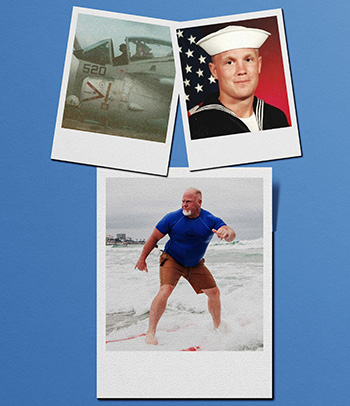
“I have to tell you this is one of the best events that I really look forward to because I literally get to bury my demons in the deep,” Ben shared. “To be able to vanquish things like PTSD, and anxiety – there’s a lot of demons that got left out there,” he added.
“I’m from Tennessee and we don’t get this – the surfing, meditation, and yoga. To have this level of support, and equipment, and everything to come out and actually do this, and I can’t even fathom what it takes to put this together,” Ben emphasized. “All I know is it works really, really well.”
Check out TriWest’s inspiring video from the 18th National Veterans Summer Sports Clinic.

